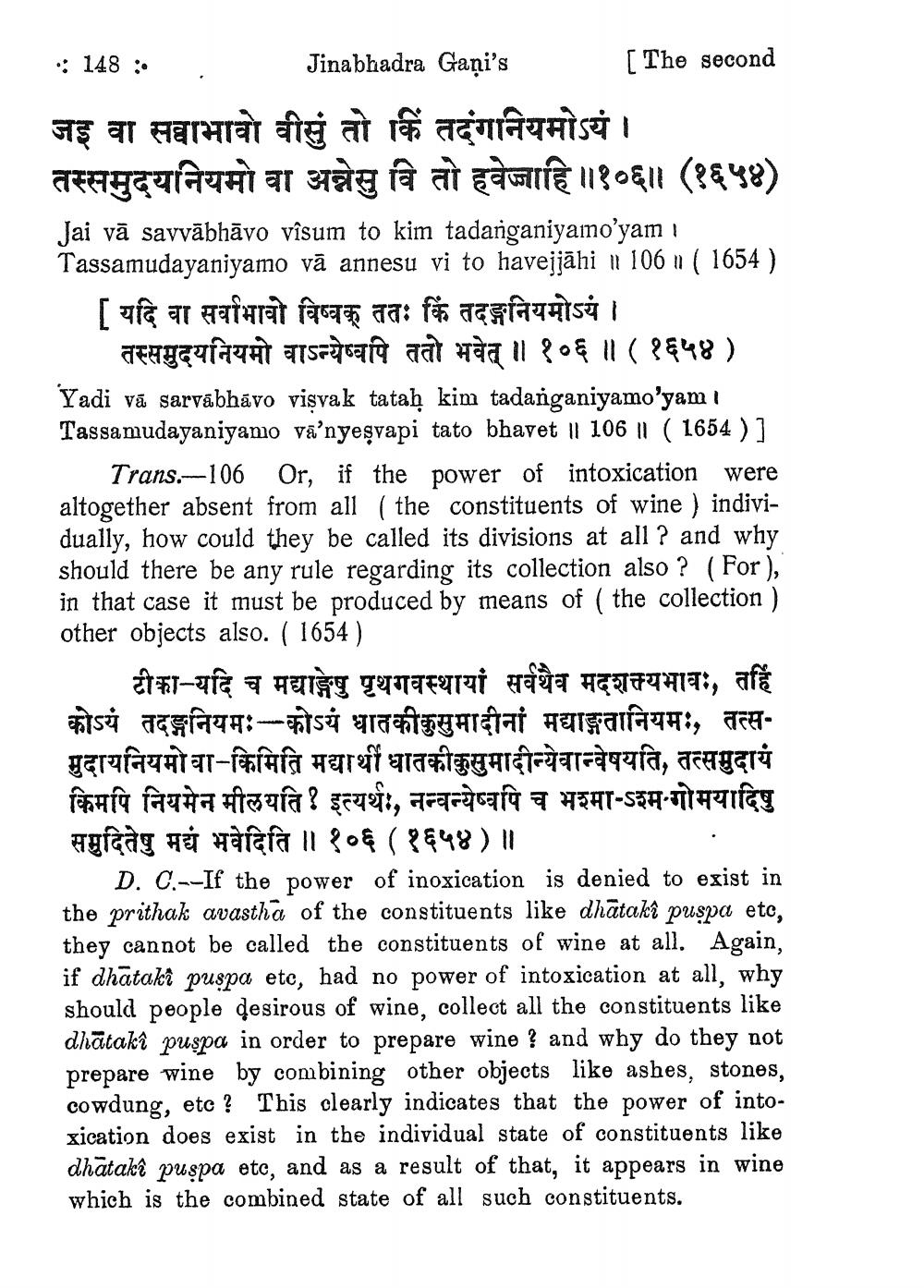________________
148 :.
Jinabhadra Gani's
[ The second
जइ वा सवाभावो वसुं तो किं तद्गनियमोऽयं । तस्समुदयनियमो वा अन्नेसु वि तो हवेजाहि ॥ १०६ ॥ (१६५४)
Jai vā savvābhāvo vîsum to kim tadanganiyamo'yam Tassamudayaniyamo vā annesu vi to havejjāhi ॥ 106 ॥ ( 1654 ) [ यदि वा सर्वाभावो विष्वक् ततः किं तदङ्गनियमोऽयं ।
तस्समुदयनियमो वाऽन्येष्वपि ततो भवेत् ॥ १०६ ॥ ( १६५४ ) Yadi va sarvabhavo visvak tataḥ kim tadanganiyamo'yamı Tassamudayaniyamo va' nyesvapi tato bhavet || 106 | ( 1654 ) ]
Trans.-106 Or, if the power of intoxication were altogether absent from all (the constituents of wine) individually, how could they be called its divisions at all? and why should there be any rule regarding its collection also? (For), in that case it must be produced by means of (the collection) other objects also. ( 1654 )
टीका- यदि च मद्याङ्गेषु पृथगवस्थायां सर्वथैव मदशक्त्यभावः, तर्हि कोऽयं तदङ्गनियमः — कोऽयं धातकीकुसुमादीनां मद्याङ्गतानियमः, तत्समुदायनियमो वा किमिति मद्यार्थी धातकीकुसुमादीन्येवान्वेषयति, तत्समुदायं किमपि नियमेन मीलयति ? इत्यर्थः नन्वन्येष्वपि च भश्मा-श्म- गोमयादिषु समुदितेषु मद्यं भवेदिति ॥ १०६ ( १६५४ ) ॥
9
D. C.--If the power of inoxication is denied to exist in the prithak avastha of the constituents like dhataki puspa etc, they cannot be called the constituents of wine at all. Again, if dhataki puspa etc, had no power of intoxication at all, why should people desirous of wine, collect all the constituents like dhataki puspa in order to prepare wine? and why do they not prepare wine by combining other objects like ashes, stones, cowdung, ete ? This clearly indicates that the power of intoxication does exist in the individual state of constituents like dhataki puspa etc, and as a result of that, it appears in wine which is the combined state of all such constituents.




